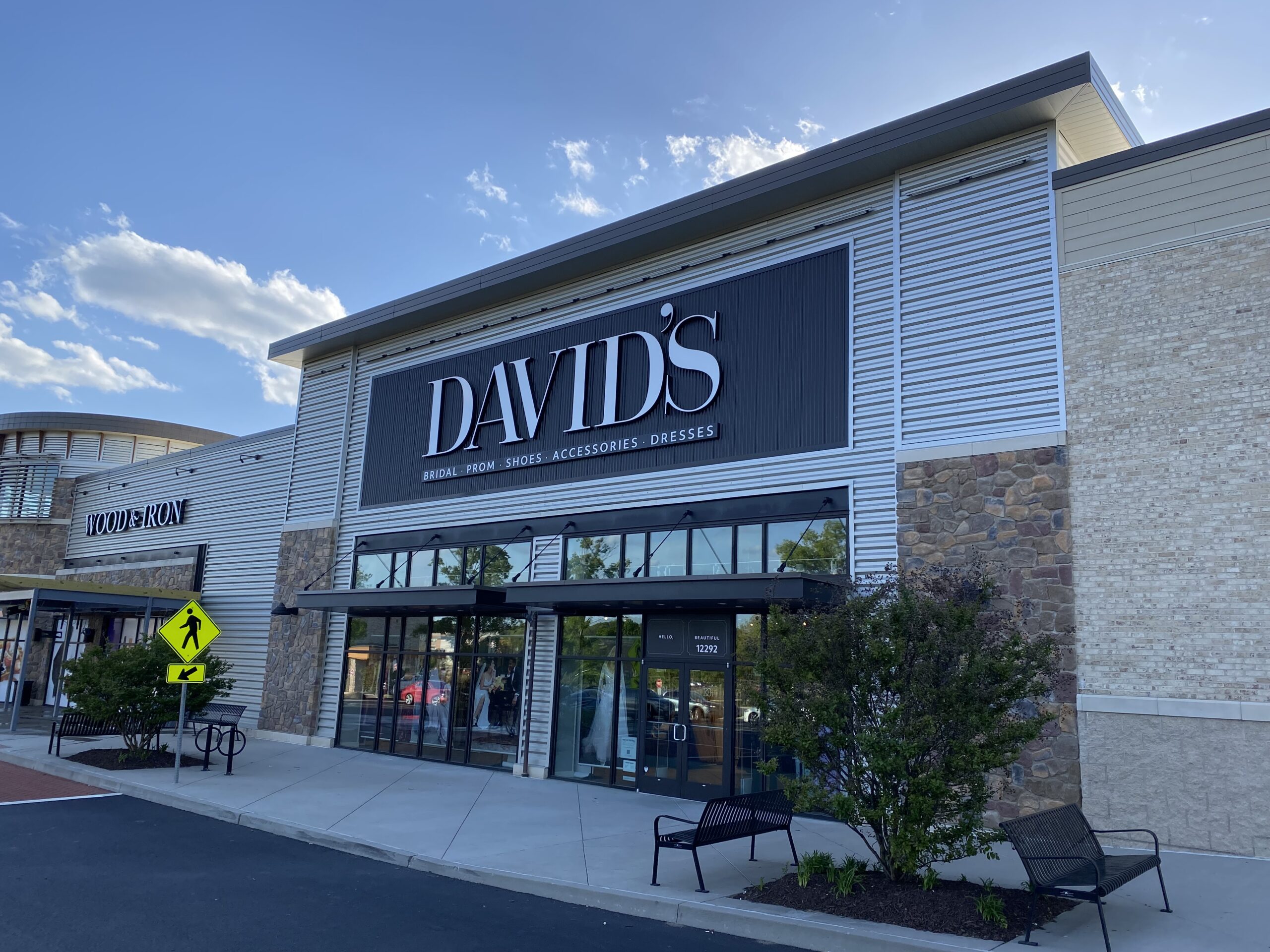The future of a newly opened David’s Bridal store in Short Pump is uncertain, now that the retail chain has gone into Chapter 11 bankruptcy protection while seeking a buyer and weighing liquidation.
For now, the Pennsylvania-based wedding gown seller’s 294 stores remain open, including its lone Richmond-area location at 12292 W. Broad St. at West Broad Marketplace.
That store opened in late 2022, replacing its previous longtime outpost at 9101 W. Broad St. in Tuckernuck Commons shopping center.
But as the company continues to struggle in the face of changing post-pandemic wedding trends, CEO James Marcum said in bankruptcy filings this week that if a buyer isn’t found for the chain it will be forced to close all its physical stores.
“While the Debtors will continue to conduct a sale process at the outset of these chapter 11 cases, if the Debtors are unable to implement a going-concern transaction, the Debtors will turn to an orderly liquidation of their remaining assets,” Marcum said in court filings.
In the meantime, David’s Bridal said it plans to continue to fulfill customer orders and generally operate as normal during its bankruptcy proceedings.
This marks the second Chapter 11 filing for David’s Bridal in five years. It first sought bankruptcy protection in late 2018 and emerged from that case in 2019 after restructuring its debt, only to see the arrival of the pandemic the following year throw it once again into turmoil.
Marcum said the company has been battered by trying to catch up from the initial cancellation of weddings because of COVID-19 and subsequent changes in trends for weddings and economic factors such as inflation.
“The company is suffering under severe liquidity constraints brought on by a confluence of adverse macroeconomic trends and industry specific headwinds, including the lasting impact of COVID-19 on the wedding industry,” Marcum said in filings. “Shifts in consumer behaviors have contributed to the elongation of wedding planning cycles and an overall casualization in wedding events, thereby affecting the demand for more traditional wedding gowns and formal attire.”
The future of a newly opened David’s Bridal store in Short Pump is uncertain, now that the retail chain has gone into Chapter 11 bankruptcy protection while seeking a buyer and weighing liquidation.
For now, the Pennsylvania-based wedding gown seller’s 294 stores remain open, including its lone Richmond-area location at 12292 W. Broad St. at West Broad Marketplace.
That store opened in late 2022, replacing its previous longtime outpost at 9101 W. Broad St. in Tuckernuck Commons shopping center.
But as the company continues to struggle in the face of changing post-pandemic wedding trends, CEO James Marcum said in bankruptcy filings this week that if a buyer isn’t found for the chain it will be forced to close all its physical stores.
“While the Debtors will continue to conduct a sale process at the outset of these chapter 11 cases, if the Debtors are unable to implement a going-concern transaction, the Debtors will turn to an orderly liquidation of their remaining assets,” Marcum said in court filings.
In the meantime, David’s Bridal said it plans to continue to fulfill customer orders and generally operate as normal during its bankruptcy proceedings.
This marks the second Chapter 11 filing for David’s Bridal in five years. It first sought bankruptcy protection in late 2018 and emerged from that case in 2019 after restructuring its debt, only to see the arrival of the pandemic the following year throw it once again into turmoil.
Marcum said the company has been battered by trying to catch up from the initial cancellation of weddings because of COVID-19 and subsequent changes in trends for weddings and economic factors such as inflation.
“The company is suffering under severe liquidity constraints brought on by a confluence of adverse macroeconomic trends and industry specific headwinds, including the lasting impact of COVID-19 on the wedding industry,” Marcum said in filings. “Shifts in consumer behaviors have contributed to the elongation of wedding planning cycles and an overall casualization in wedding events, thereby affecting the demand for more traditional wedding gowns and formal attire.”
